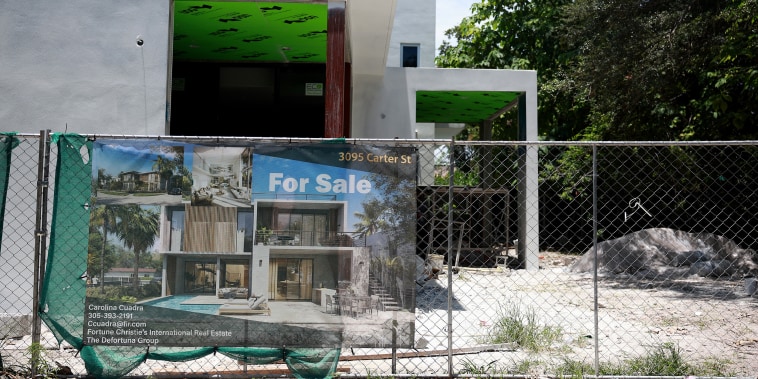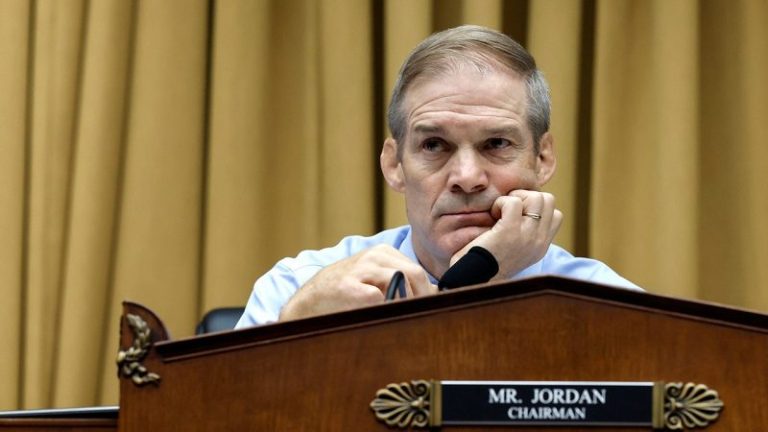Federal Reserve officials expressed concern at their most recent meeting about the pace of inflation and said more rate hikes could be necessary in the future unless conditions change, minutes released Wednesday from the session indicated.
That discussion during a two-day July meeting resulted in a quarter percentage point rate hike that markets generally expect to be the last one of this cycle.
However, discussions showed that most members worry that the inflation fight is far from over and could require additional tightening action from the rate-setting Federal Open Market Committee.
“With inflation still well above the Committee’s longer-run goal and the labor market remaining tight, most participants continued to see significant upside risks to inflation, which could require further tightening of monetary policy,” the meeting summary stated.
That latest increase brought the Fed’s key borrowing level, known as the federal funds rate, to a range targeted between 5.25%-5%, the highest level in more than 22 years.
While some members have said since the meeting that they think the further rate hikes could be unnecessary, the minutes suggested caution. Officials noted pressure from a number of variables and stressed that future decisions will be based on incoming data.
“In discussing the policy outlook, participants continued to judge that it was critical that the stance of monetary policy be sufficiently restrictive to return inflation to the Committee’s 2 percent objective over time,” the document said.
Lots of uncertainty
Indeed, the minutes suggested considerable misgivings over the future direction of policy.
While there was agreement that inflation is “unacceptably high,” there also was indication “that a number of tentative signs that inflation pressures could be abating.”
“Almost all” the meeting participants, which includes nonvoting members, were in favor of the rate increase. However, those opposed said they thought the committee could skip a hike and watch how previous increases are impacting economic conditions.
“Participants generally noted a high degree of uncertainty regarding the cumulative effects on the economy of past monetary policy tightening,” the minutes said.
The minutes noted that the economy was expected to slow and unemployment likely will rise somewhat. However, staff economists retracted an earlier forecast that troubles in the banking industry could lead to a mild recession this year.
Real estate concern
But there was concern over problems with commercial real estate.
Specifically, officials cited “risks associated with a potential sharp decline in CRE valuations that could adversely affect some banks and other financial institutions, such as insurance companies, that are heavily exposed to CRE. Several participants noted the susceptibility of some nonbank financial institutions” such as money market funds and the like.
For the future of policy, members emphasized two-sided risks of loosening policy too quickly and risking higher inflation against tightening too much and sending the economy into contraction.
Recent data shows that while inflation is still a good distance from the central bank’s 2% target, it has made marked progress since peaking above 9% in June 2022.
For instance, the consumer price index, a widely followed measure of goods and services costs, ran at a 3.2% 12-month rate in July. The Fed’s favorite measure, the personal consumption expenditures price index excluding food and energy, stood at 4.1% in June.
However, policymakers worry that declaring victory too soon could repeat critical mistakes of the past. In the 1970s, central bankers raised rates to combat double-digit inflation, but backed off quickly when prices showed tentative signs of backing off.
Despite the intent of the hikes to slow down the economy, they’ve had seemingly little effect on overall growth.
GDP gains have averaged above 2% in the first half of 2023, with the economy on pace to rise another 5.8% in the third quarter, according to updated projections from the Atlanta Fed.
At the same time, employment growth has slowed some but still remains robust. The unemployment rate was at 3.5% in July, hovering around its lowest level since the late 1960s. Job openings have come in some from record levels but still far outnumber the pool of available workers.
Some Fed officials of late have indicated that while rate cuts are unlikely this year, increases could be over. Regional Presidents John Williams of New York and Patrick Harker of Philadelphia, for instance, both said last week they could see a pathway to holding the line here. Market pricing is strongly pointing to no additional hikes, with less than a 40% chance of another increase priced in before the end of the year, according to CME Group data.
More from CNBC:
U.S. gov. has grown too big, promised too much, subsidized too many: fmr. U.S. Comptroller General Here’s why Wells Fargo’s Paul Christopher is expecting one more rate hikeGrading the Inflation Reduction Act one year later with Fmr. Rep Donna Edwards and Ron Christie










